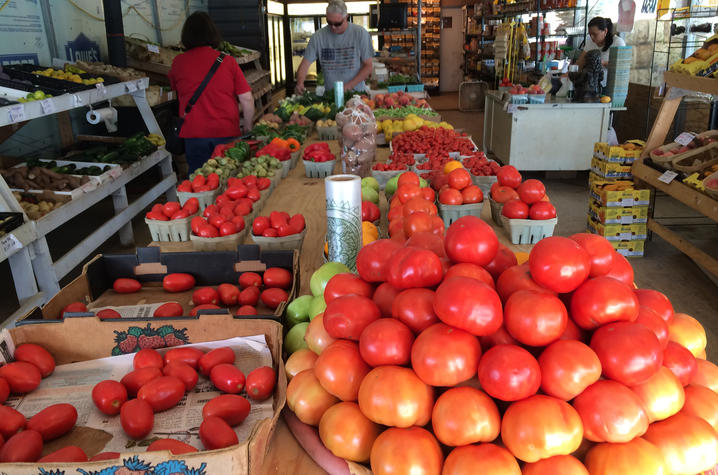Schmid Wins National Prize for Research Paper

LEXINGTON, Ky. (Feb. 23, 2017) — University of Kentucky graduate student in anthropology, Mary Elizabeth Schmid, won the Eric R. Wolf Prize from the Society for the Anthropology of Work for her paper "Tomatoes and Temporality: Political Economies of Time in the Fresh-Market Tomato Industry in the Southeastern U.S." The award is presented by the American Anthropological Association.
Schmid's dissertation research is making original contributions to a number of fields. Her findings contest the stereotypes about Latino workers in southeastern agriculture and global circulations of labor and commodities. She is studying binational Latin@ family agricultural enterprises in Mexico and the southeastern U.S.
Schmid is finding that women have an important role in these production and marketing networks, a contribution often overlooked in the literature. Latin@ entrepreneurs are innovators in Appalachian North Carolina agriculture as the production of cash crops is diversified, particularly in new regional networks of tomato production and marketing.
Schmid's theoretical attention to conceptualizations of time and kinship in relation to binational agricultural enterprises is a contribution recognized nationally through this competitive paper prize. The award is monetary and accompanied by consideration of the paper for publication in the Anthropology of Work Review.
“By looking at tomato enterprises which plant, cultivate, harvest, transport and/or market produce, (my) paper presents a body of evidence that counter-constructs the racialized stereotype concerning Mexicans and Mexican-Americans’ contributions to agriculture in the southeastern U.S.,” Schmid said. “It shows how an ethnographically informed picture of a regional tomato industry circuit reveals commonly unrecognized features of social change, enterprise, production-exchange relations and redistributive practices. It concludes by suggesting that these enterprise arrangements and practices could support the creation of more equitable regional food production systems.”




